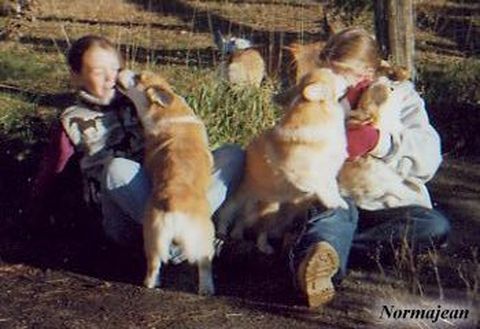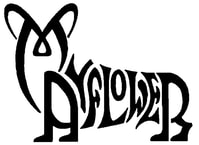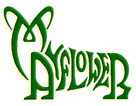Breed Characteristics: The Pembroke as a Companion
Excerpted from The Complete Pembroke Welsh Corgi By Deborah Harper

THE CORGI AS A PET AND COMPANION
The breed standard general description of the Pembroke is: "Outlook: bold, but kindly. Expression: intelligent and interested. Never shy or vicious." If there was ever a summary description of the breed, this would be it.
The Pembroke is "a big dog in a small dog's suit," with a personality that is playful and fun-loving, but also can be protective and tenacious. Pembrokes love attention and can be real clowns.
The Pembroke Welsh Corgi is a very intelligent and versatile companion animal. The most suitable home for a Pembroke is with an owner who is looking more for a companion than just a decoration, someone who is looking for a dog who is as happy going for walks around the neighborhood as for romps in the woods.
Though the Pembroke is an energetic breed and eager for new sights and smells, Pems are just as content to keep their owners company at home. With a reasonable amount of exercise they are just as suited to city life as to life in the country. Pembrokes are very people oriented and should not be left in the backyard only to be occasionally petted. They are at their best when incorporated into full family life.
Pembrokes are excellent with responsible children. As with any dog, you must teach your children how to treat the dog, and not allow them to abuse or tease the dog. The Pembroke is a loving, protective and playful companion, ideal for a family that is able to take the time to train and play with its dog.
Do Pembrokes shed much? Absolutely! They are what is known as a double coated breed, having long outer, or "guard" hairs that protect them from mud and snow and such, with a dense undercoat that helps to regulate body temperature. They shed out typically twice a year, but often there are dog hairs about the house year-round. This is not a breed to consider if you don't like to vaccuum!
Do Pembrokes bark much? In a word, yes. Pems are very vocal dogs; a typical Pembroke has several different sounds, from a low "wuff" to a loud, threatening "BARK!" They engage in watchdog barking (such as when someone rings the doorbell, or when they hear a suspicious noise outside) as well as barking for its own sake. Because of their intelligence, Pems can be trained to be quiet on command (although it's much easier to train a Pembroke to "speak" than to "shut up"). Teaching a dog to "speak" has been known to also train the dog to only "speak" when asked.
(Reprinted with permission)
By Deborah Harper
The breed standard general description of the Pembroke is: "Outlook: bold, but kindly. Expression: intelligent and interested. Never shy or vicious." If there was ever a summary description of the breed, this would be it.
The Pembroke is "a big dog in a small dog's suit," with a personality that is playful and fun-loving, but also can be protective and tenacious. Pembrokes love attention and can be real clowns.
The Pembroke Welsh Corgi is a very intelligent and versatile companion animal. The most suitable home for a Pembroke is with an owner who is looking more for a companion than just a decoration, someone who is looking for a dog who is as happy going for walks around the neighborhood as for romps in the woods.
Though the Pembroke is an energetic breed and eager for new sights and smells, Pems are just as content to keep their owners company at home. With a reasonable amount of exercise they are just as suited to city life as to life in the country. Pembrokes are very people oriented and should not be left in the backyard only to be occasionally petted. They are at their best when incorporated into full family life.
Pembrokes are excellent with responsible children. As with any dog, you must teach your children how to treat the dog, and not allow them to abuse or tease the dog. The Pembroke is a loving, protective and playful companion, ideal for a family that is able to take the time to train and play with its dog.
Do Pembrokes shed much? Absolutely! They are what is known as a double coated breed, having long outer, or "guard" hairs that protect them from mud and snow and such, with a dense undercoat that helps to regulate body temperature. They shed out typically twice a year, but often there are dog hairs about the house year-round. This is not a breed to consider if you don't like to vaccuum!
Do Pembrokes bark much? In a word, yes. Pems are very vocal dogs; a typical Pembroke has several different sounds, from a low "wuff" to a loud, threatening "BARK!" They engage in watchdog barking (such as when someone rings the doorbell, or when they hear a suspicious noise outside) as well as barking for its own sake. Because of their intelligence, Pems can be trained to be quiet on command (although it's much easier to train a Pembroke to "speak" than to "shut up"). Teaching a dog to "speak" has been known to also train the dog to only "speak" when asked.
(Reprinted with permission)
By Deborah Harper
|
© 2021 Mayflower Pembroke Welsh Corgi Club, Inc.
All rights reserved. |




